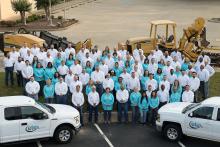The Retreat from Fiber, Local Government Inaction, and 8 Million Americans Offline | Episode 123 of the Connect This! Show

Catch the latest episode of the Connect This! Show, with co-hosts Christopher Mitchell (ILSR) and Travis Carter joined by regular guests Kim McKinley (Tak Broadband) and Doug Dawson (CCG Consulting) to talk about all the recent broadband news that's fit to print. Topics include:
- Now that final Benefit of the Bargain numbers are in on the BEAD program, the trend is clear: tens of thousands of locations will no longer see any federal solution, and nearly a million more will get worse and more expensive satellite service rather the fiber.
- With BEAD now a shadow of what it could be, it's never been more apparent that local governments need to step into the gap. Where are they all?
- A new report claiming just 8 million Americans remain offline as of 2025 shows the trouble of asking too simple of questions and accepting too simple of answers in describing the problem of the digital divide.
Join us live on October 24th at 2pm ET, or listen afterwards wherever you get your podcasts.
Email us at broadband@communitynetworks.org with feedback and ideas for the show.
Subscribe to the show using this feed or find it on the Connect This! page, and watch on LinkedIn, on YouTube Live, on Facebook live, or below.












